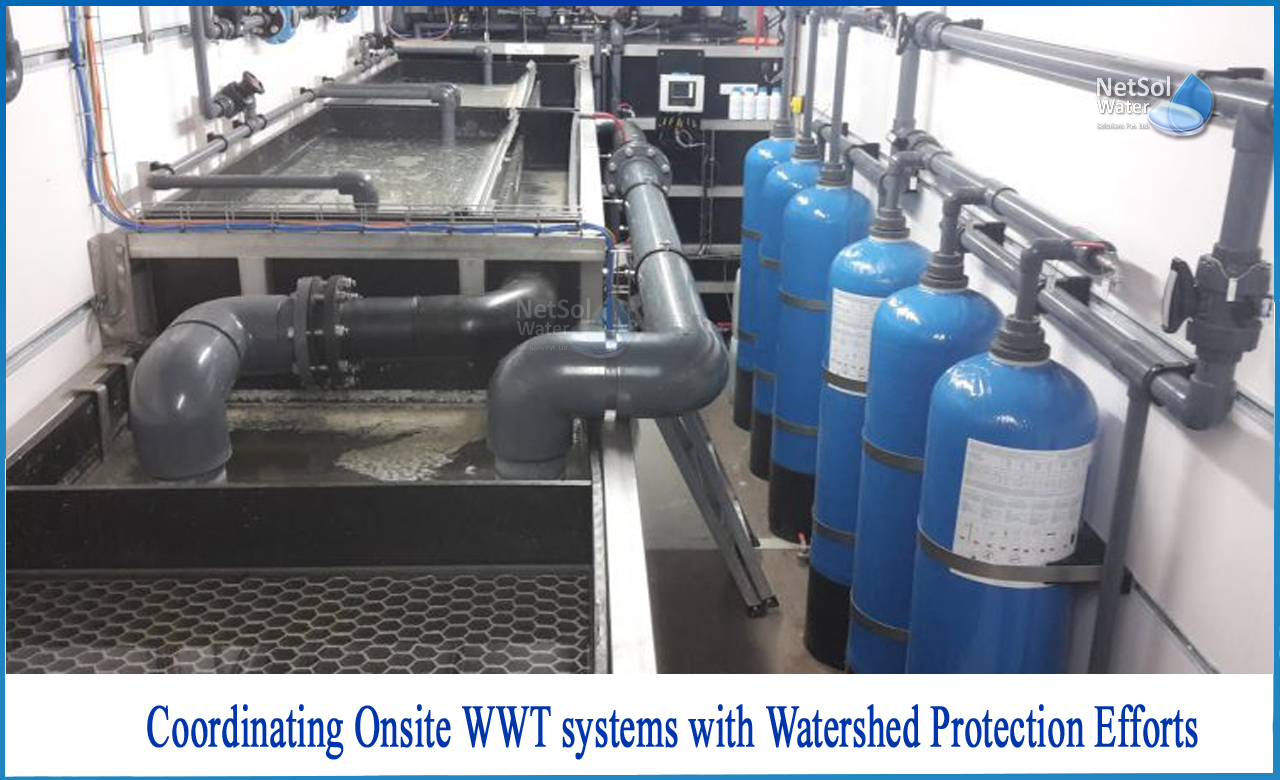How to Coordinating Onsite WWT systems?
On-site wastewater treatment systems (OWTSs) have progressed from the frequently used pit privies of the past to facilities capable of generating disinfected effluent appropriate for human consumption. Although such effluent quality is rarely required, onsite systems' capacity to remove settleable particles, floatable grease and scum, nutrients, and pathogens from wastewater discharges emphasizes its relevance in preserving human health and environmental resources.
Coordinating onsite WWT system with watershed protection efforts
Watershed evaluation, planning, and management has been increasingly popular among public and commercial groups interested in conserving and restoring water resources during the last decade.
When undertaking monitoring, assessment, issue targeting, and remediation actions, this strategy takes into account all land uses, other activities, and qualities of each drainage basin or ground water recharge zone. A watershed strategy combines a spatial focus with scientific concepts and stakeholder collaboration. Because onsite systems may have a considerable influence on water resources, onsite/decentralized wastewater management organizations are becoming more active in their areas' watershed preservation efforts. Using a watershed approach to coordinate onsite wastewater management operations with programs and projects considerably improves overall land use planning and development processes.
Benefits of the Collaboration
1: A collaborative, coordinated strategy to preserving public health and water resources can provide benefits that are larger than the sum of each partner's individual efforts. Onsite wastewater management agencies are critical components of watershed partnerships, and their participation brings reciprocal advantages, operational efficiency, and public education opportunities that are difficult for agencies to achieve on their own.
2: Onsite/decentralized systems have cheaper construction and maintenance costs, especially in low-density residential areas, making them a viable option for small towns, suburban developments, remote school and institutional sites, and rural locations.
3: On-site/decentralized wastewater treatment systems also minimize potentially massive water transfers from one watershed to another, which can occur when water is collected and treated centrally.
Several obstacles to developing more efficient onsite wastewater management systems, include the following:
1: Public misconceptions that centralized sewage treatment facilities operate better, preserve property values, and are more acceptable than de-centralized treatment systems due to a lack of understanding and public attitudes.
2: Legislative and regulatory limits, as well as prescriptive requirements, that make it difficult for local governments to design or implement effective management and oversight roles.
3: A lack of management programs that consolidate planning, siting, design, installation, and maintenance activities under a single entity with the resources and authority to ensure that performance requirements are met and performance is maintained, as well as a split of regulatory authority, which limits the evaluation of alternatives.
4: Liability regulations that deter innovation, as well as cost-based engineering fees that deter investment in developing creative, cost-effective technologies.
5: Grant restrictions, loan priorities, and other financial or institutional impediments prohibit rural towns from receiving money, evaluating alternate wastewater treatment options, or forming management organizations that straddle several agencies' domains.
What can we provide?
Netsol Water collaborates with a wide range of international organizations to tackle complicated problems by strategically integrating modern treatment technology with practical solutions. We can provide a good framework of onsite wastewater treatment systems, collaborated with watershed conservation measures.
Netsol Water is Greater Noida-based leading water & wastewater treatment plant manufacturer. We are industry's most demanding company based on client review and work quality. We are known as best commercial RO plant manufacturers, industrial RO plant manufacturer, sewage treatment plant manufacturer, Water Softener Plant Manufacturers and effluent treatment plant manufacturers. Apart from this 24x7 customer support is our USP. Call on +91-9650608473, or write us at enquiry@netsolwater.com for any support, inquiry or product-purchase related query.



